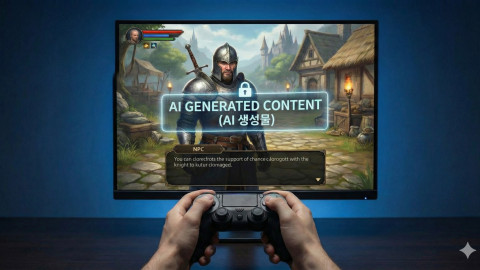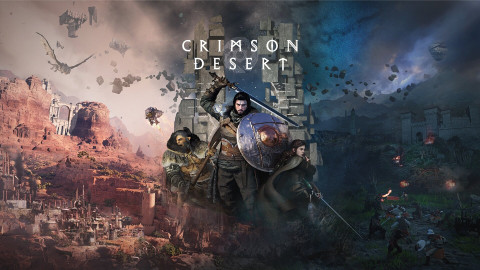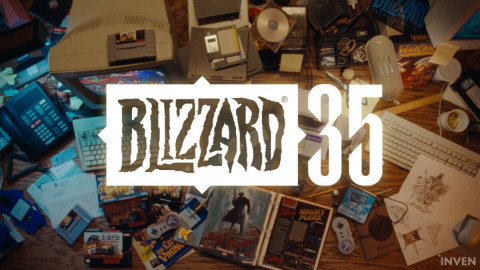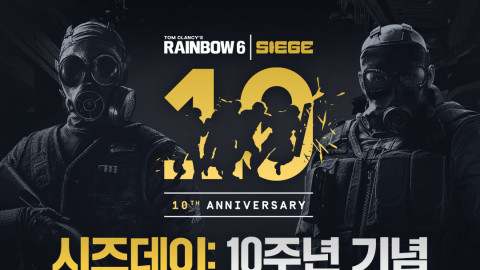Mandie Roman's well-rounded experience in the esports industry and affinity for gaming lifestyle made her appearance at the 2019 Inven Global Esports Conference a perfect match. The gaming fashion expert and host moderated three panels, spoke on another, and co-hosted the IGEC2019 networking afterparty.
Roman managed to find some time in her busy schedule to talk to Inven Global's Nick Geracie about IGEC 2019, her multi-facetedness, and the future development of all aspects of North American esports.

I'm joined by Mandie Roman. How are you enjoying IGEC 2019 so far?
So far, so good. I've already knocked out moderating "The Female Faces of Esports" Panel. I scarfed down some lunch really quickly because I have to hop right into my next panel, which is "Inside the LCS Control Room." It will be all about Riot Games' League of Legends Championship Series.
You're also moderating "K/DA - POP/STARS: Creating a Moment for the Players" later today.
Yes, the main theme of the day for me is League of Legends, which is great, because it's my first esports love. We'll jump from LCS to an entire panel dedicated to K/DA - POP/STARS and how the project came together, as well as the AR [augmented reality] performance at the 2018 League of Legends World Championship. We'll also discuss the song itself, the following skin line in-game, and all that stuff.
By moderating those three panels and speaking on "The Fashionable Intersection of Esports and Streetwear", you have more going on than any other speaker in the conference. How did you become so multi-faceted in esports?
I kind of tag myself under gaming lifestyle. I like to go to any sort of events that are around gaming culture, which includes a lot of esports events. I got really into esports because I live very close to the LCS arena, and I started going to matches all of the time. I realized the community was really awesome, and I loved being there and hanging out with all of the fans. That gradually expanded into following Overwatch League and going to the Blizzard Arena more frequently.
Lifestyle is about fashion too, so I'm really into apparel and as I put it, 'wearing my geek on my sleeve.' I'm speaking on the esports fashion panel because that's an integral part of showcasing your fandom, especially in that you can do it in a more subtle way with streetwear. I have a love for all of these aspects of esports and gaming, but it's also part of my job since I work in consumer products and licensing. I have to do it, but I also really love participating in those communities as a fan.
Your well-roundedness lends itself greatly to being a moderator. Is there anything specific you'll be trying to highlight as a panelist on "The Fashionable Intersection of Esports and Streetwear" in regards to the role that fashion plays in the esports community?
For a long time, people just wore jerseys with the name of their favorite player on the back. That's great and it works for a lot of people, but I want to be able to integrate more of esports fashion into my everyday look. Wearing a Cloud9 jersey or a Los Angeles Valiant jersey may not be the most practical thing on a daily basis; I feel that that would be something you would wear to a game. If I can extend that to my everyday look, I think that's where esports fashion is going.
The question is, "How can we make something that you can wear on a daily basis?" Also, it's important to be cognizant of who is wearing the clothing. I know FlyQuest just released a whole leisure line for women. It doesn't have to just be dresses with a character on it. We can have specific apparel that can be more functional and fashionable.
I always tell people that I work with to think of fashion before fandom. You want to think of the body styles and what kind of clothes you're releasing first, and then you add the branding or the character afterwards.
Esports apparel is moving to be less on the nose with characters and team branding, but you also don't want it to be simply quintessential streetwear or athleisure. How do you strike the balance between those two extremes?
I think that's a tricky question, too.

To clarify with an example, the Inven Global x Esports Famous collaboration for IGEC2019 has some pretty eye-catching branding, but the clothing itself is something you could see ones self wearing elsewhere.
Right, and I think having stuff that is functional is important, too. It's not just about a logo emblazoned on a tee shirt. For example, if we're going to make a hoodie, is it going to have a front pocket and/or a hood that you can have your headphones in? Does it have a velcro part for a patch of your favorite team?
We see teams like 100 Thieves and their owner Matthew "Nadeshot" Haag releasing these incredible exclusive lines of apparel. It's all functional, but it's incredibly chic and fashionable with interesting prints. Taking these established prints and designs but elevating them to make them feel more tech-y and more futuristic is something I associate a lot with esports. I think the apparel for endemic brands should reflect that approach.
Your next panel, "Inside the LCS Control Room", is going to focus on what goes into what is arguably the premiere esports production in North America. What do you think are necessary factors for a successful esports broadcast in North America?
For me, community is number one. Obviously, you're going to have people watching your matches, but how can you involve them in the broadcast of those matches? Whether that's in-person, or viewing on Twitch at home, what kind of perks do you have for those viewers? Do you have a sign-making station at your arena? Are players doing meet & greets with fans after games? Are you putting up fan tweets up on the big screen and posting fan-made videos?
Riot has always been good about this. At the LCS arena, they are always celebrating fan creations, whether it fan-made content or cosplayers attending the games at the arena. There's always a real importance around the community and the fans, and I think that's integral to the success of any esports league.
You can't just broadcast esports under the impression that 'if you build it, they will come.' That's not how it works. You have to nurture your audience and make the matches better to watch for them by involving them and making them feel they are a part of the community.
Speaking towards communities, people oftentimes focus on convering sports fans to esports fans instead the playerbase of some of these games that is largely unaware of esports. The K/DA - POP/STARS moment that you'll be moderating a panel on later was so important because it brought reality, LoL Esports, and in-game features all to the forefront simultaneously. How integral is this balance of factors to the development of esports?
That's a tricky question, because I know there's a lot of money riding on the line for venture capitalists and traditional sports brands coming into esports. They have a huge ROI they have to deliver on and there are millions of dollars at stake. Still, I think we have to be careful about how quickly the esports industry is trying to adapt and become more like traditional sports, because I don't think we're quite ready for it yet.
Infrastructure is still being built out. There's media training for players, and organizations figuring out what positions they need to fill in their front offices. I think it's important that we adopt some of the characteristics of traditional sports, but we might need to slow down the pace in some regard so we don't grow too fast.
The possibility of a bubble bursting has been a topic of discussion recently in esports, and it makes me a little apprehensive. *Laughs* I think for us to get the infrastructure we need, we may need something like an esports union or something similar. Regardless of what the infrastructure becomes, however, we need to watch the pace of building out what's to come.

Let's talk about "The Female Faces of Esports" panel that you just moderated. You spoke about how Overwatch League does a great job of showcasing diversity in all facets of the broadcast. Is there something specific about the Overwatch League that has lent itself to more diversity
This is probably just one facet of it, but the game itself is really diverse. In turn, I think that makes the playerbase a little more diverse as well, because there's a hero that everyone can feel an affinity toward. Whether that's playstyle, skin color, or sexual orientation, the diversity of the game itself lends itself to the playerbase, the talent pool, and the professional pool being more diverse.
It also helps that OWL is located in Los Angeles, so the talent pool of people who work in production is a lot bigger than other places. You have more roles to fill with a production like OWL, and if you keep things more diverse, that's overall going to be good for the league.
I really enjoyed that you and the panelists highlighted the issues women face in the esports industry, but also emphasized that these are issues that transcend the esports industry and are more societal. From your perspective, what do you think can be done to better integrate gaming as more than a hobby for young boys to legitimize esports as a career path for all genders?
You have to start not just at the collegiate level, but the high school level, the junior high level, and even the elementary school level. It's important to get parents and other people in higher positions at these various levels more accepting of esports and gaming in general. If the people in these positions are making decisions that benefit esports and gaming, that's only going to help things trickle down.
If we're still in a space where people are mad that Rocket League is on CBS, or Overwatch League is on ABC, then we need more of these types of decisions to happen so it becomes more normalized. I hope we reach a time where we don't need to have a panel focused on women in esports, but right now, it's important to have these conversations with women who have a lot of experience in the industry.
I think it starts in leadership positions from a developer level. The developers themselves have to be more diverse so they're building more diverse games so that in turn, the people playing them are more diverse, and then the players trying to play these games professionally will be more diverse. It's a chain reaction that can happen, but it starts at the top in the decision-making positions. If we keep talking about it and throwing things out there, something has to change.
Sort by:
Comments :0






